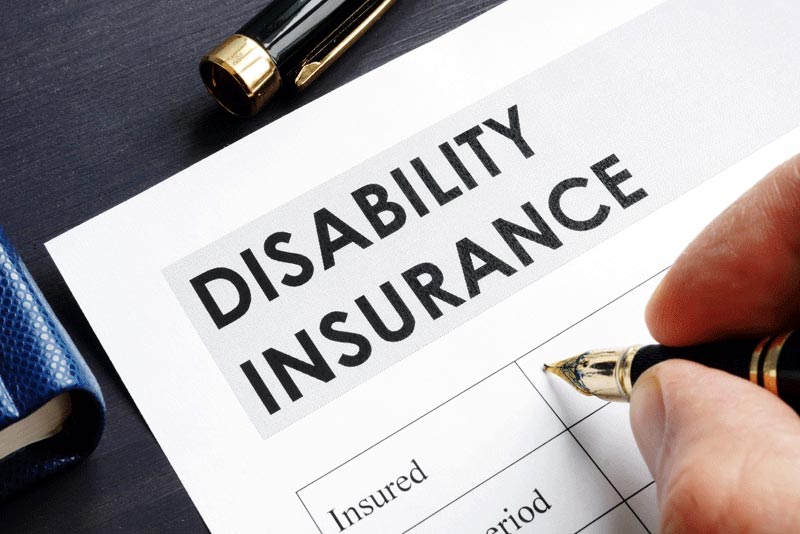Tinnitus and hearing loss are conditions that significantly impact veterans, and disability attorneys need to handle the VA disability claim process efficiently to ensure that their clients receive the compensation they deserve. The eligibility for such a service-connected disability claim is determined based on a comprehensive medical record analysis. The veteran, his/her spouse, surviving spouse, child or parent may be eligible to receive disability benefits.
Role of Medical Chart Review in VA Disability Benefits Claims Processing
The veteran needs to prove that the auditory problem was caused by his/her military duty. A medical chart review is a critical component of the VA disability claims process, and its importance cannot be overstated. VA health care and disability compensation is granted based on a comprehensive medical chart review. To establish that the disability is service connected, the following are necessary.
- A current diagnosis of a hearing condition
- Proof of an event that was responsible for the condition
- A reliable medical opinion connecting the current hearing condition to that particular event in service
Attorneys representing veterans typically utilize the services of a medical record review company to review the medical charts of their clients.
Benefit from comprehensive medical chart review services!
Contact us at 1-800-670-2809 for a consultation!
Now let us consider in some detail the key reasons why medical chart reviews are essential for VA Disability claims:
- Establishing service connection: Medical records are crucial for establishing a direct link between a veteran’s disability and their time in active military service. Reviewing medical charts can help identify and document the onset or worsening of a condition during military service, providing evidence for service connection.
- Determining severity and impairment: A thorough review of medical records allows for an assessment of the severity of a disability. The extent of the impairment is a primary factor in determining the disability rating, which directly influences the level of compensation a veteran receives.
- Documenting progression and flare-ups: Medical charts often contain information about the progression of a disability or instances of flare-ups. This information is vital for determining whether a disability is static or progressive, which impacts the disability rating and long-term compensation.
- Identifying secondary conditions: In some cases, veterans may develop secondary conditions as a result of their service-connected disabilities. Medical record review can help identify such secondary conditions and link them to the primary service-connected disability.
- Ensuring accurate information: Medical records are typically considered highly reliable sources of information. By reviewing these records, the VA can ensure that the data used to evaluate a disability claim is accurate and well-documented.
- Supporting credibility: Consistency in medical records bolsters the credibility of a veteran’s disability claim. It helps to establish that the claimed disability is legitimate and corroborates the veteran’s account of their condition.
- Meeting VA requirements: The VA has specific criteria and requirements for disability claims. Review of medical records ensures that the necessary documentation is in place to meet these requirements, reducing the likelihood of claim denials or delays.
- Maximizing compensation: Ultimately, the goal of the VA disability claims process is to provide fair compensation to veterans who have been impacted by service-connected disabilities. An accurate and comprehensive review of medical charts is essential to ensure that veterans receive the compensation they deserve.
Tips to Apply for VA Disability
- Submit detailed statements which explain the noise exposure the veteran experienced during military service.
- Provide details regarding the sources of the noise – e.g. the machinery, environment and so on.
- Mention the duration of the exposure and provide details regarding the type of hearing protection used. Also, mention if no protection was used.
- Provide details regarding when the symptoms of hearing loss were first observed, and whether they have continued.
- Give details regarding any additional post-military exposure to noise.
- Provide a medical opinion from a licensed audiologist or ear/nose/throat surgeon who can establish a connection between the veteran’s hearing loss disability and the service-related exposure.
Determining the Degree of the Veteran’s Hearing Loss
Two basic tests are used to check for hearing loss and disability rating, namely, pure-tone audiometry and speech audiometry or speech discrimination. The former is the most commonly used test and tests the faintest tones you can hear at different frequencies or pitches. The level of hearing loss is calculated by measuring the difference between one’s hearing threshold and the normal average. If the score is “zero” it means normal hearing. Higher scores indicate that the louder it has to be for the person to hear the tone.
- 20 – 40 dB higher than normal, means mild hearing loss
- 40 – 55 dB higher than normal, means moderate hearing loss
- 55 – 70 dB higher than normal, means moderate to severe hearing loss
- 70 – 90 dB higher than normal, means severe hearing loss
- 90 dB or more, signifies profound hearing loss
While the above test measures the sounds a person can hear, speech audiometry tests are further performed to measure his/her ability to understand human speech. Generally, two different speech audiometry tests are conducted (Maryland CNC test), one measures the softest level at which the person recognizes speech and the second measures their ability to understand speech.
Based on the test results, the VA assigns a percentage of disability to the veteran. Some veterans may be more disabled by their service-related hearing loss than others and a completely deaf veteran is much more likely to receive maximum disability rating than a veteran who has partial hearing impairment.
Coming to ratings for hearing impairment, they are rated under the VA Schedule of Ratings Disabilities in Section 4.87, diagnostic codes 6200 to 6260. Typical ratings for hearing loss are 0% or 10%. Severe or profound hearing loss could qualify for a higher rating. The disability rating for tinnitus is 10%. This 10% rating will be assigned whether the veteran has ringing in one ear or in both ears. One cannot receive a 20% rating due to tinnitus in both ears. If the veteran has hearing loss and tinnitus, he/she can get separate ratings for each disability.
Application Submission and Appeals Process in Case of Claim Denial
Veterans with hearing impairment as well as other disabilities can apply for VA disability compensation by calling their regional VA office or by visiting the VA website and filling out an Application for Veterans Compensation and/or Pension. If a veteran’s disability claim is denied for some reason or another, he/she can appeal the decision with the support of a disability attorney. During the appeals process, additional medical evidence can be presented to the VA which could help the veteran secure a higher disability rating on the ratings table. An Independent Medical Examination or IME can be obtained and the results presented to the VA. If a private doctor who is not affiliated to the VA states that the applicant’s hearing loss is more severe than the VA had determined, the applicant’s disability rating may be increased.
As a medical record review company assisting disability lawyers, MOS understands that though applicants are not legally required to have a lawyer file for their disability benefits, having an experienced attorney is beneficial in many ways. Given the significance of medical records and medical chart review, and the challenge in getting a complete medical record set, a legal team’s assistance will be invaluable to the veteran claimant. The attorney and his/her team can quickly organize and compile the right documents to present along with the application.
Experience the winning difference with our medical record review services!
Benefit from competitive pricing, greater accuracy, and improved productivity.
Consult our team! Call (800)-670-2809!




